In today's #vatniksoup, I'll introduce an Austrian right-wing, populist party FPÖ (@FPOE_TV). They're best-known for their anti-immigration and euroskeptic rhetoric and policies, and for their close ties to the Kremlin and other pro-Kremlin parties around Europe.
1/18
1/18
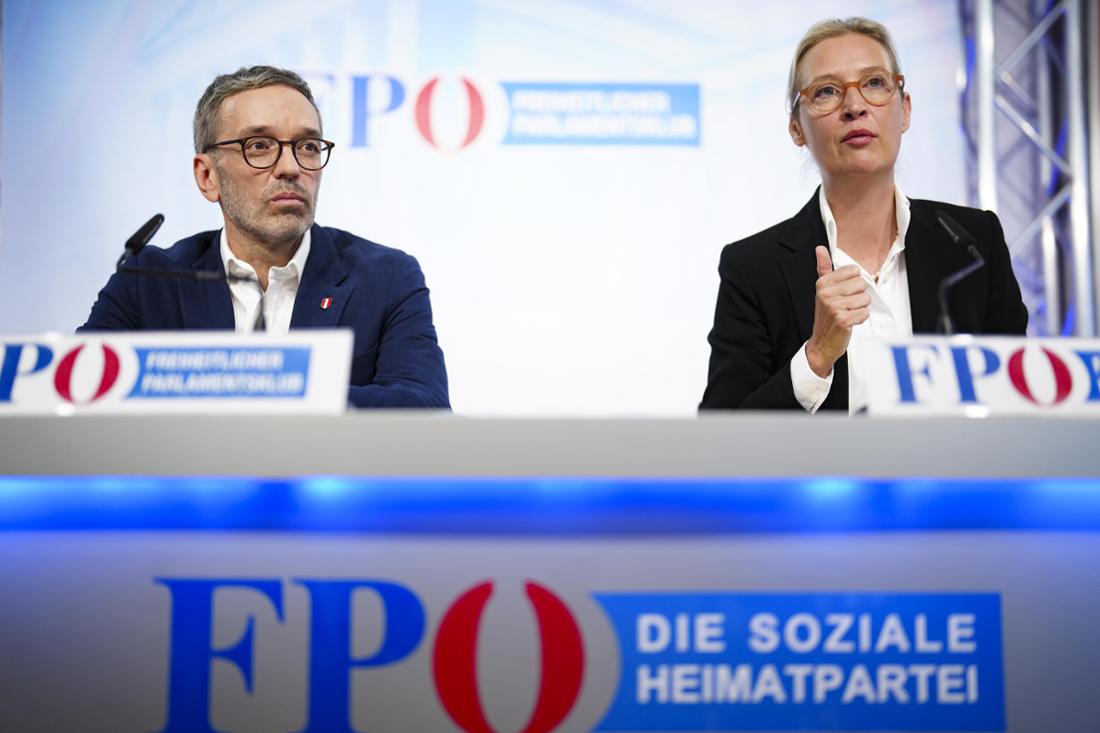
FPÖ was found in 1956, and its first leader was Anton Reinthaller, a former Nazi Minister of Agriculture and SS officer. He was later replaced by another former SS officer, Friedrich Peter. FPÖ finally shed its Nazi past in 1967 after its more extreme faction left the party.
2/18


2/18


During the 90s, with Jörg Heider as their leader, FPÖ focused more on anti-immigration and euroskepticism.
After they were included in a coalition government in 2000, 14 EU countries imposed sanctions on Austria due to the "legitimisation of extreme right" in Europe.
3/18


After they were included in a coalition government in 2000, 14 EU countries imposed sanctions on Austria due to the "legitimisation of extreme right" in Europe.
3/18


With the upcoming 2024 Austrian legislative election, FPÖ is expected to become the biggest party - recent polls have suggested that they'd get around 26-31% of all votes. Their popularity has been rising since the so-called "Ibiza gate" - a political scandal that shook...
4/18


4/18


..Austria in 2019 after a publishing of a secretly recorded video. The 2017 video showed the former vice chancellor of Austria and leader of FPÖ, Heinz-Christian Strache & the party's former deputy leader, Johann Gudenus talking with a woman calling herself Alyona Makarova.
5/18



5/18


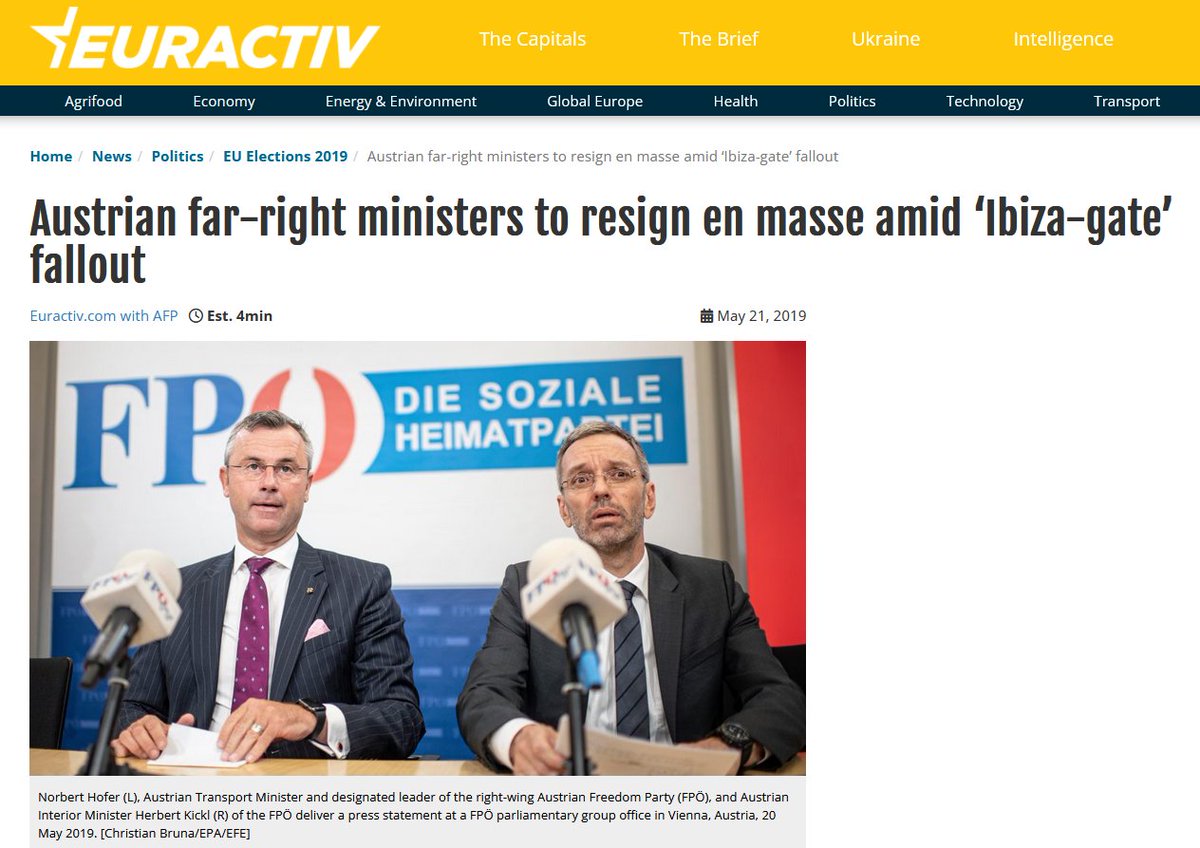
During the discussion, "Miss Makarova" offered the FPÖ leaders positive news coverage in return for government contracts. She also claimed to be the niece of Russian businessman Igor Makarov. What the FPÖ boys didn't know was that the entire exchange was staged & recorded.
6/18
6/18
The video was published just few days before the EU election and it led to the collapse of the government & the resignation of Strache. Some time later,FPÖ's remaining ministers, including Minister of the Interior and the current leader of the party, Herbert Kickl, resigned.
7/18


7/18
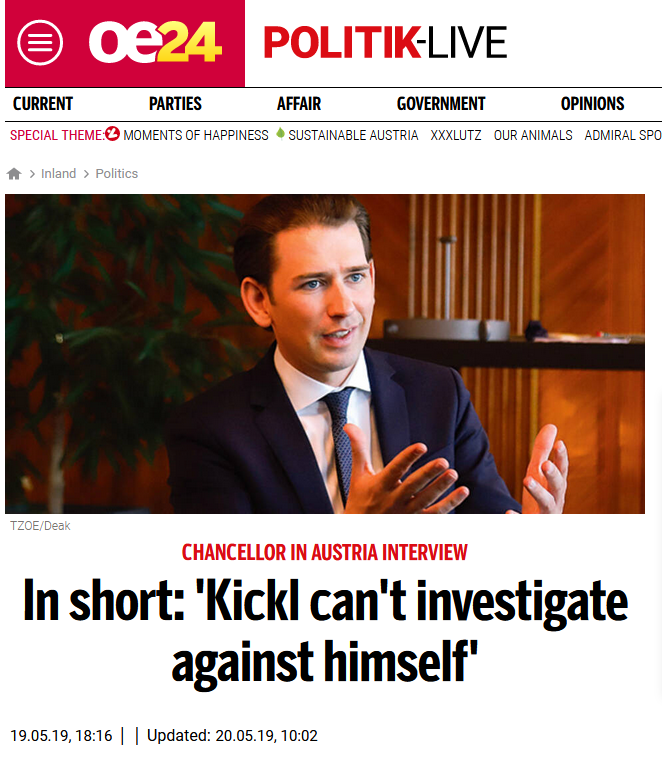
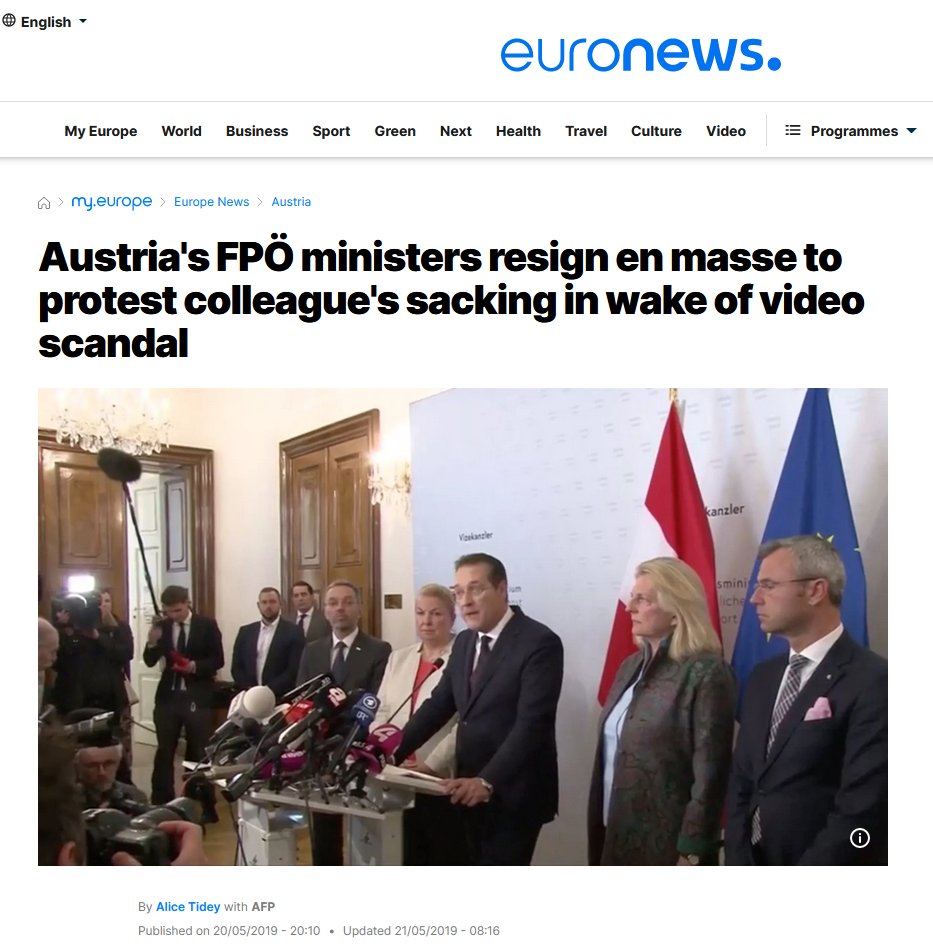
But after the scandal, FPÖ has regained their popularity by speaking against COVID-19 lockdowns and vaccinations, by attributing negative economic aspects to EU's sanctions against Russia, and by presenting Austrians as victims of "Western elites".
8/18


8/18
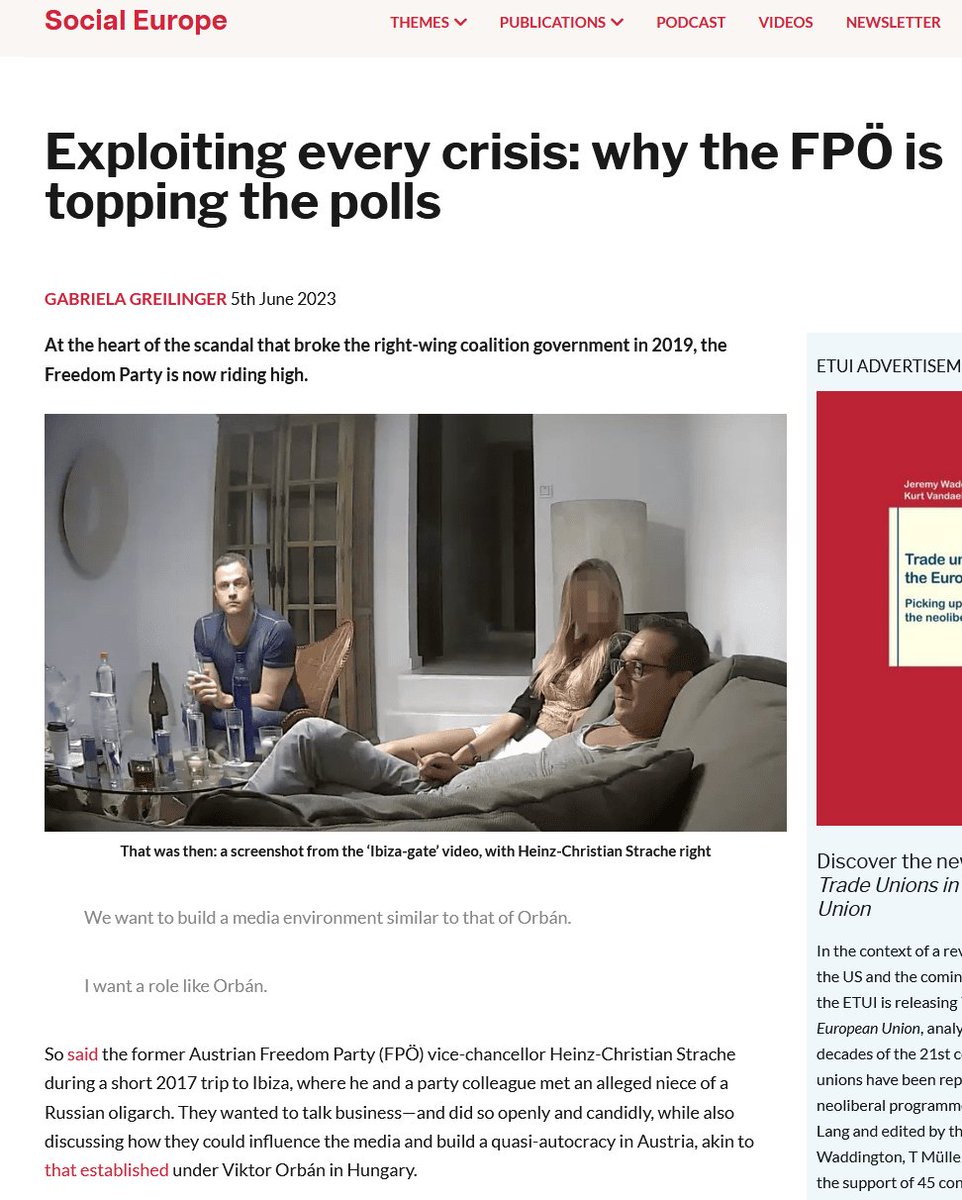

For a long time,FPÖ has been the most pro-Kremlin party in Austria. Its former leader, Strache, signed a formal cooperation agreement with Putin's United Russia already back in 2016. The party has blamed "Western political elites" for the relations between the West & Russia.
9/18
9/18

FPÖ openly praised Russia for the rejection of "Western liberalism", and strongly condemned the sanctions against Russia after they annexed Crimea. The cooperation agreement between FPÖ and Putin's United Russia was recently formally renewed until 2026.
10/18


10/18

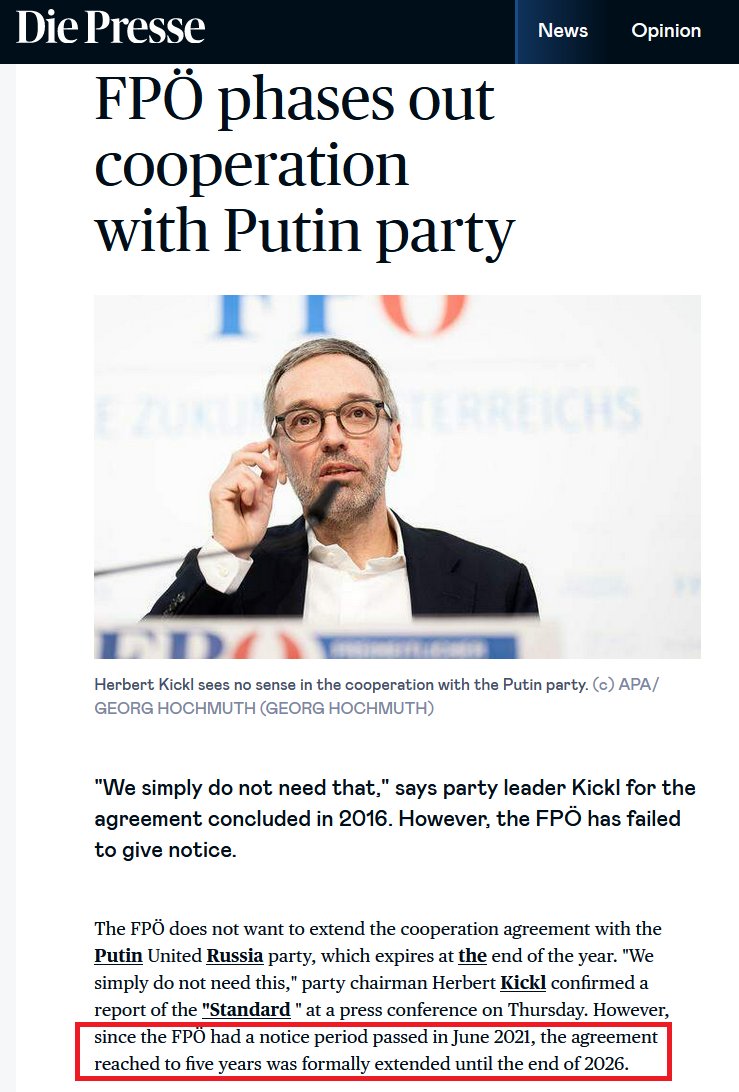
When it comes to the war in Ukraine, FPÖ's narrative claims that it's a "struggle between opposing sides" rather than an aggressive war launched by Russia. They also strongly focus on blaming sanctions and the EU for inflation and spikes in energy prices.
11/18
11/18

FPÖ received geopolitical advice and classified documents from the Federal Office for the Protection of the Constitution and Counter-terrorism (BAT) and the Ministry of the Interior from Wirecard fraudster and spy for Russia, Jan Marsalek.
12/18
12/18

In Mar 2023, FPÖ lawmakers walked out from the lower house of Austria's Parliament during the Ukrainian president Volodymyr Zelenskyy was giving a speech. According to FPÖ, this was done "in protest at this supposed violation of Austria's national principle of neutrality".
13/18
13/18

As is tradition, FPÖ has cooperated with other European far-right, populist parties that have also collaborated closely with Russia. These include Italian Lega Nord, Belgian Vlaams Belang; Slovak, ultranationalist SNS, Orban's Fidesz and the Serbian Progressive Party.
14/18




14/18




The voters of right-wing and populist parties around Europe are often interested in other things than the ongoing war in Ukraine. They are especially concerned about the day-to-day stuff like rising prices and inflation, and the division between the poor & the rich.
15/18
15/18

And this is where the populist parties thrive - most often they don't provide solutions per se, but demonize the other parties as "elitists" who have abandoned the "common folk". As an alternative, they offer "neutrality" and increase in business with countries like Russia.
16/18


16/18


It's worth mentioning, that Austria is a wealthy, pluralistic country with free elections, a strong civic society & free press; it is not like Hungary under Orbán.
Allegedly, people are generally unhappy with the current government and are looking for a salvation from FPÖ.
17/18
Allegedly, people are generally unhappy with the current government and are looking for a salvation from FPÖ.
17/18

But one should remember that throughout the years, the party's been riddled with corruption.
And to be fair, there's also some good things FPÖ has achieved: after the Ibiza scandal: Vengaboys' fantastic "We’re going to Ibiza" reached #1 in the Austrian music charts again.
18/18
And to be fair, there's also some good things FPÖ has achieved: after the Ibiza scandal: Vengaboys' fantastic "We’re going to Ibiza" reached #1 in the Austrian music charts again.
18/18
I have paused personal donations for now, please support @U24_gov_ua by donating to the #HopakChallenge and sending me the receipt:
https://twitter.com/P_Kallioniemi/status/1727001859846730089
• • •
Missing some Tweet in this thread? You can try to
force a refresh

































